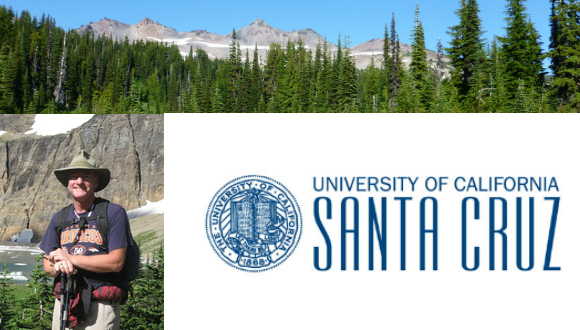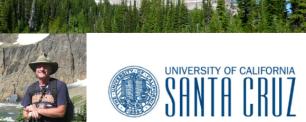Ecological consequences of altered precipitation regimes at the Sierra Nevada - Great Basin Desert ecotone.
Un nou seminari al CREAF a càrrec del Dr. Michael E. Loik (University of California, Santa Cruz)

DIA I LLOC:
Dijous de gener 23 a les 12:00 a la Sala de Graus II, Edifici C Facultat de Biociències de la UAB
TÍTOL
Ecological consequences of altered precipitation regimes at the Sierra Nevada - Great Basin Desert ecotone.
This research examines the influence of altered precipitation patterns on plant ecophysiology, plant communities, and ecosystem processes in a high-elevation cold desert of eastern California, USA. In arid ecosystems typical of much of the western USA, water availability affects plant survival, photosynthesis, growth, reproduction, and migratory potential. We are utilizing 55 yr old snow fences constructed by California’s highways department to create increased and decreased snow depth treatments, which simulate scenarios envisioned by some climate change models for the future. I will describe how changes in snow depth and melt timing affect soil water content, plant water relations, photosynthesis, and recruitment in this cold and arid shrub-dominated ecosystem. Results can help us to better understand how climate change will affect energy, water, and carbon fluxes for this region, which is an important "water tower" for California's water resources.
A CÀRREC DE:
Dr. Michael E. Loik (University of California, Santa Cruz)
Michael E. Loik is Associate Professor of Plant Physiological Ecology in the Environmental Studies Department at the University of California, Santa Cruz. His research focuses on better understanding how climate change will affect plant and ecosystem processes, and incorporating more realistic portrayals of meteorological processes into experiments and models of global change ecology. He has a B.Sc. and M.Sc. from the University of Toronto, a Ph.D. from University of California Los Angeles, and was a postdoc at the University of California Berkeley. At UCSC, he teaches classes on plant physiological ecology and climate change ecology.






